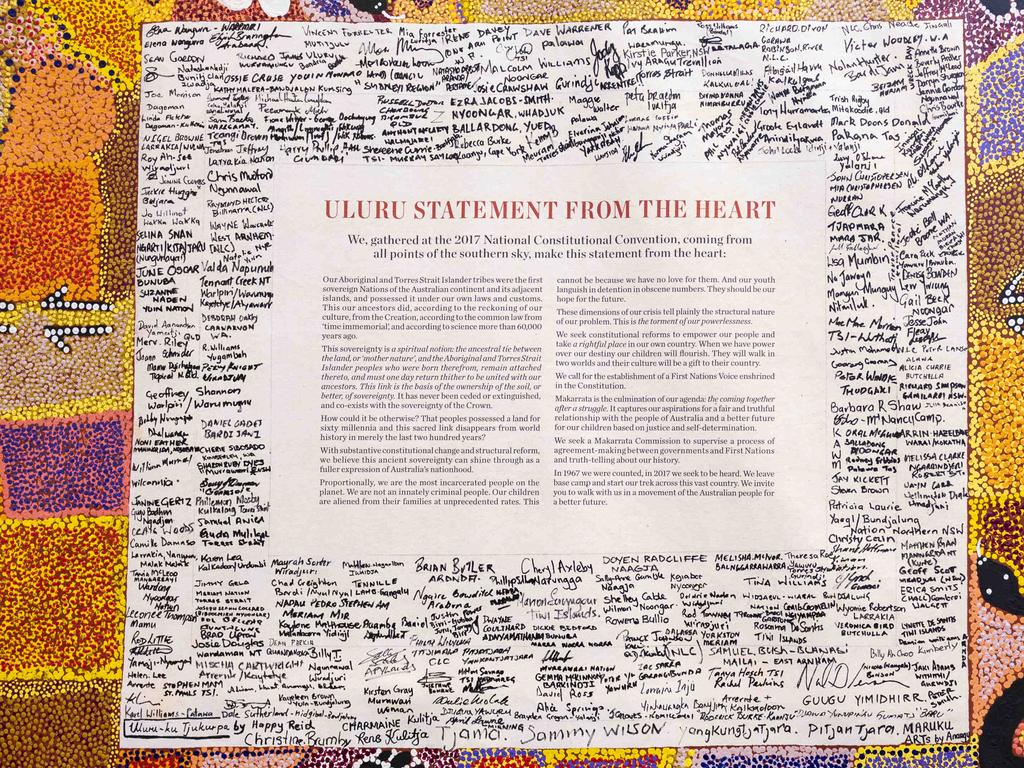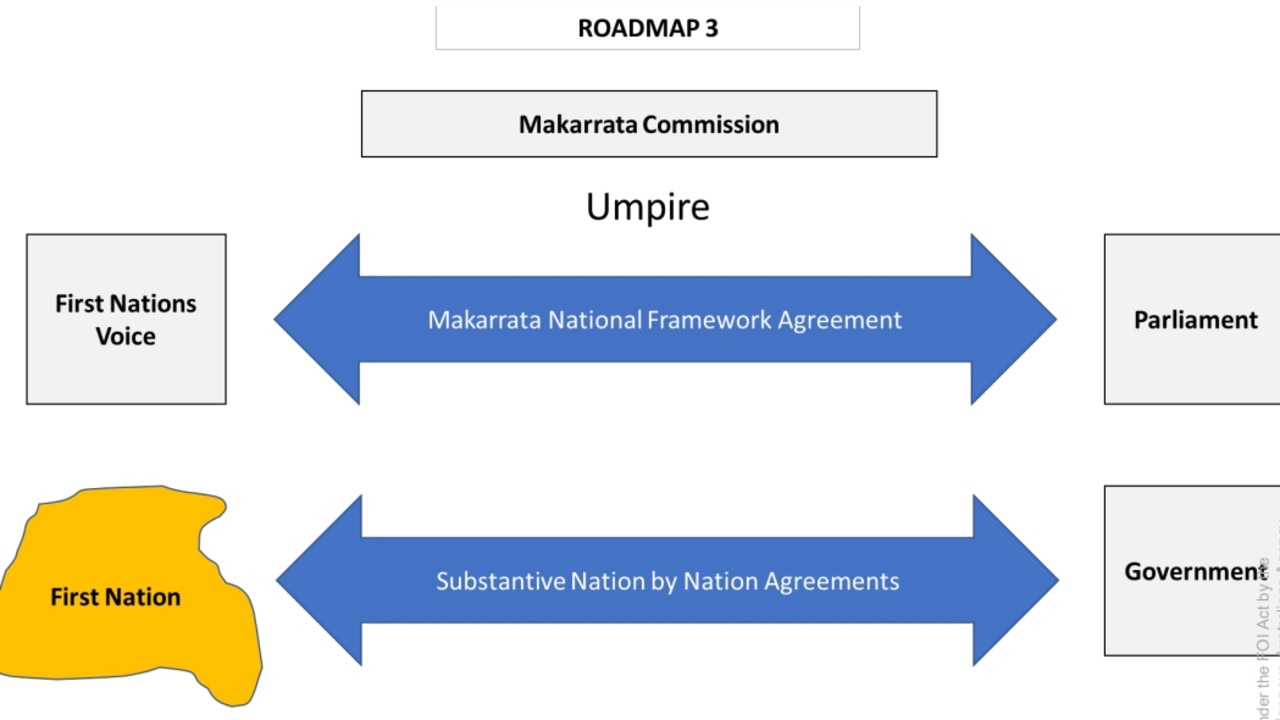Albo’s Voice just one big trick or treaty
Documents reveal a manifesto sitting behind the Uluru Statement from the Heart, with a proposed “Makaratta” commission to take on the role of a “Truth and Reconciliation Commission”.
A successful referendum on the Voice to Parliament could lead to a powerful First Nations treaty-making commission that would sit above parliament and the executive government to act as an “umpire” in their dealings with Aboriginal groups.
Documents released under freedom of information laws by the National Indigenous Australians Agency reveal a long manifesto sitting behind the Uluru Statement from the Heart also reveal this “Makaratta” commission would take on the role of a “Truth and Reconciliation Commission”.
This commission would also take over the functions of the National Native Title Tribunal.
The revelations come in the wake of an ongoing controversy that has seen Prime Minister Anthony Albanese dogged by questions over whether he supports a treaty between the Australian government and Aboriginal Australians.
On Monday Mr Albanese tried to hose down concerns after images surfaced of him wearing a “Voice, Treaty, Truth” T-shirt.

“I just say to you and I say to your listeners, read the question you are going to be asked about. It’s not about treaty, it’s not about compensation. It’s just about listening in order to get better governance,” Mr Albanese said.
At 25 pages, the final Uluru Statement document and road map is much longer than the single page Uluru Statement from the Heart which Mr Albanese has repeatedly said can fit on a “single A4 page.”

Along with a Makaratta commission, the document also calls for the Voice to have offices “on an appropriate site within the parliamentary circle in Canberra” that would be “supported by a sufficient and guaranteed budget with access to its own secretariat, experts and lawyers.”
A “road map” contained in the report reveals that the Makaratta commission would be established at the same time the Voice to Parliament was legislated.
In one diagram, the Makaratta commission was envisioned as sitting above both parliament and the Voice.
Shadow Aboriginal Australians minister Jacinta Nampijinpa Price said: “Is the plan for this to be implemented in full?”

“What we see here is in effect the idea of customary law being put over and above the domestic system,” she said.
“The word itself is about payback … these views need to be called out and clarified, since none of them are about improving the lives of our most disadvantaged Indigenous Australians.”
“This is all about control and power,” she said.
The final report was the culmination of regional dialogue meetings held across Australia in 2016 and 2017 that saw various Aboriginal groups come together to discuss amending the constitution.
Notes from these meetings revealed wide support for reparations and other forms of compensation as well as legal self-determination for Aboriginal groups.
Participants in the Adelaide dialogue, for example, called for “designated seats in parliament” as well as “seeking a percentage of GDP” by way of reparations to Aboriginal people.
A spokesperson for the prime minister said, “What was adopted by the 2017 convention at Uluru was the Uluru Statement from the Heart.
“Other calls that were made during the dialogue process were not endorsed by the statement and are not government policy.”
“The call in the Uluru Statement from the Heart respects the primacy of the Parliament.”





